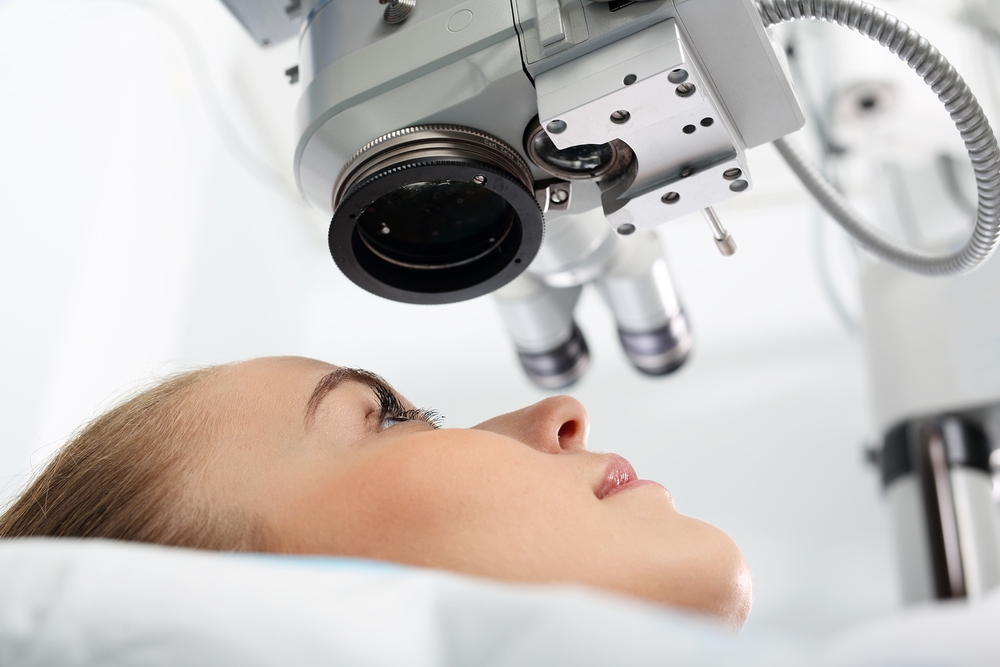
If you are a glasses group, you may have heard many rumors about laser vision correction.
The most common surgical methods are excimer laser in situ keratomileusis (LASIK) and excimer laser keratectomy (PRK). Such operations can return vision to 1.0 and realize the wish of lens removal.
However, the operation also has side effects. Is what suitable for laser vision correction surgery? Can what effect be achieved after doing it?
Who is suitable for laser vision correction surgery?
Laser surgery can correct myopia, hyperopia and even astigmatism, but not everyone uses the same surgical method.
If the following points are met, laser corrective surgery can be considered:
The eye degree has not changed for at least one year. Your job has no restrictions on eye surgery. Your eyes and body are in good health.
What should we pay attention to in laser correction surgery?
If there are diseases such as diabetes, AIDS, lupus erythematosus or rheumatoid arthritis that may affect wound healing, then laser surgery is not very suitable.
Other things that need careful consideration include:
Dry eye; Larger pupil; Thin cornea; Laser surgery is not suitable for people with keratoconus.
Through specific medical examination, you can know from the doctor whether you are suitable for laser surgery.
How is laser surgery done?
At present, there are mainly two kinds of laser optic correction surgery.

Universal LASIK
By adjusting the thickness of the cornea to better concentrate light, the operation fixes the eyes through a device called a negative pressure suction ring.
After fixing the eye, the doctor will cut a small, pedicled corneal flap on the cornea, then determine the degree of cutting according to the preoperative examination results, reshape the cornea with excimer laser, and then put the corneal flap back in place.
Accurate LASIK
There is also a new type of LASIK called Wavefront-Guided LASIK, which is more accurate and expensive than standard LASIK. Before surgery, doctors will use [aberrators] to measure the eye’s [aberration] map in detail and record extremely small corneal defects.
Theoretically, the effect and postoperative vision of this surgical method are better. At the same time, the discomfort of patients’ night vision after operation is less than that of traditional LASIK.
What kind of orthopaedic surgery should these people choose?
Dry eye and thin cornea
For patients with dry eye or people with thin cornea, there is actually another type of surgery to choose from, such as PRK and corneal subepithelial LASIK and LASEK.
This kind of operation takes longer to recover than LASIK, but it is less uncomfortable. Patients usually need to wear [bandage] contact lenses for three to five days after operation.
High myopia
If laser vision correction surgery cannot be performed because the degree is too large, intraocular lens (or intraocular lens implantation with lens eye, PIOLs) approved by FDA for myopia treatment may be a good choice.
This kind of lens is made of silicone or plastic and can be placed in front of or behind one’s own lens by surgery.
The risks that this technology may cause are relatively high, including vision loss, night vision problems, and the possibility of requiring additional surgical adjustment, removal or replacement of such crystals.
Correction of presbyopia?
Standard laser corrective surgery is not suitable for presbyopia. Many people see blurred objects after the age of 40. Such patients can choose an operation method called [monocular vision] under the guidance of doctors.
Is laser corrective surgery dangerous?
There is no risk without surgery.
After laser surgery, some symptoms can disappear on their own, such as dry eye and other common discomfort and side effects will generally be relieved within a few days to months. However, some may require further surgery or cause permanent damage.
Common risks of visual correction surgery include:
Permanent dry eye; Halo, glare or diplopia: making driving difficult at night; Excessive correction or insufficient correction: glasses or contact lenses need to be worn after operation; There is an obvious loss of vision, but loss of vision is extremely rare.

What about how’s choice of surgeon?
- Please recommend it from friends who have undergone surgery and have achieved good results. Find a doctor who has performed at least 200 operations and carefully followed up the patients after the operation. Price is important, but your eyes are even more important. You must reject advertisements whose quotations sound incredibly low. How many patients are [rejected] can be used as a selection criterion, because doctors who carefully screen patients will generally reject more than 10% of patients.
How did you feel during the operation?
Laser surgery usually takes less than 10 minutes, during which time your eyes are unconscious, but you are awake.
You may feel stress, but you should not feel pain. Your eyesight will darken during the operation, and when the laser works, you may smell scorching smell.
After that, the doctor will use blindfold or bandage to protect the eyes for two to three days. Because inflammation after surgery can make people feel itchy or burning pain, it usually takes days or weeks to drop eye drops.
How should I prepare before surgery?
Once you have decided to perform the operation, your doctor may suggest that you treat dry eye or inflammation before the operation. You can also follow the following steps:
3 ~ 7 days before operation: stop wearing contact lenses;
One day before operation: no cream, lotion, cosmetics or perfume are used;
On the day of operation: clean eyelid and intraocular dirt.
Early postoperative recovery
In the few days after the operation, you may have these discomforts:
Foreign body sensation or slight pain; To shed tears; Fluctuation of vision; Obscure or blurred vision.
These are all normal, just pay attention to observation.
The follow-up visit is required 1-2 days after the operation. At this time, most people can already drive to the doctor’s office for follow-up visit.
Note that you must not rub your eyes during the recovery period after surgery.
It is best to avoid strenuous activities 3 ~ 7 days after operation, which mainly depends on the operation method. Avoid makeup and skin care lotion around eyes according to the doctor’s advice.
Postoperative recovery schedule
It may take up to half a year for the vision to stop changing after operation, especially for dizziness, photophobia, seeing stars and other problems.
The following is the timetable for postoperative recovery:
1 ~ 3 days after operation: itching, burning sensation, slight pain and discomfort, tears;
Week 1: Obscure vision, blurred vision and photophobia;
Week 1 ~ 4: Dry eye, glare and driving at night;
First half of the year: vision changes, regular review.
Effectiveness of LASIK, PRK and LASEK how?
Even if the operation is successful, it is not necessary to use glasses at all.
You may still need to wear glasses when reading at night and driving at night. For people with high degrees, the degree of visual correction by surgery is limited, and low-degree glasses are still required after surgery. You can speculate on the possibility of successful surgery from the following data:
94% ~ 100% can obtain 0.5 or better vision; 3% to 10% of patients need reoperation; About 1/5 of the patients had dry eye after operation. 1% ~ 5% of the patients had a slight decline in vision, and a small number of patients had corneal thinning. The vision of 70% PRK patients can reach 1.0. 92% of PRK patients have visual acuity of 0.8 or better. PRK is better than high hyperopia in correcting medium and low hyperopia. As far as moderate and low myopia is concerned, the success rate of LASEK is similar to LASIK.
Responsibility: Cat Capricorn
